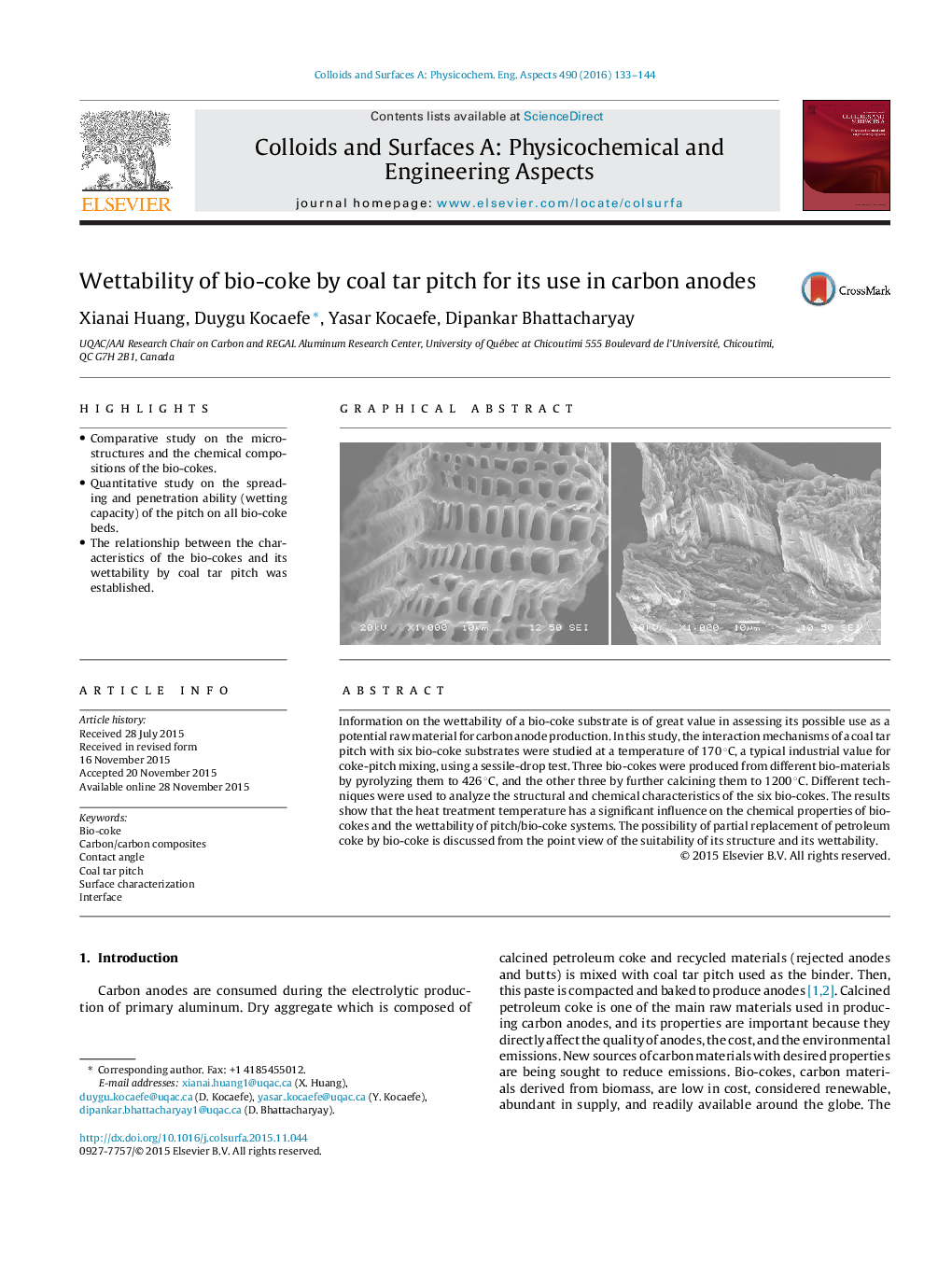| Article ID | Journal | Published Year | Pages | File Type |
|---|---|---|---|---|
| 591816 | Colloids and Surfaces A: Physicochemical and Engineering Aspects | 2016 | 12 Pages |
•Comparative study on the micro-structures and the chemical compositions of the bio-cokes.•Quantitative study on the spreading and penetration ability (wetting capacity) of the pitch on all bio-coke beds.•The relationship between the characteristics of the bio-cokes and its wettability by coal tar pitch was established.
Information on the wettability of a bio-coke substrate is of great value in assessing its possible use as a potential raw material for carbon anode production. In this study, the interaction mechanisms of a coal tar pitch with six bio-coke substrates were studied at a temperature of 170 °C, a typical industrial value for coke-pitch mixing, using a sessile-drop test. Three bio-cokes were produced from different bio-materials by pyrolyzing them to 426 °C, and the other three by further calcining them to 1200 °C. Different techniques were used to analyze the structural and chemical characteristics of the six bio-cokes. The results show that the heat treatment temperature has a significant influence on the chemical properties of bio-cokes and the wettability of pitch/bio-coke systems. The possibility of partial replacement of petroleum coke by bio-coke is discussed from the point view of the suitability of its structure and its wettability.
Graphical abstractFigure optionsDownload full-size imageDownload as PowerPoint slide
